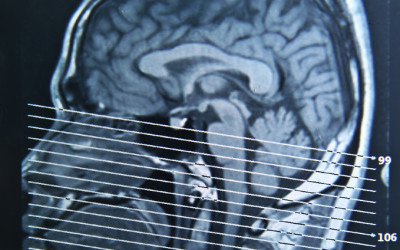The fall season in Wisconsin brings much more than the color change among the leaves; it brings the start of football. Although most enjoy spending their Sundays getting together with friends and family to cheer on the Green Bay Packers, during Concussion Awareness Month we should become more familiar with the short and long term risks associated with playing contact sports. Most are aware of the short term risks associated with blows to the head, namely, a concussion. But, what are the long term risks of taking repeated blows to the head?
Recent research shows Chronic Traumatic Encephalopathy or CTE to be the most significant risk for athletes, even after they have stopped playing contact sports. According to researchers at Boston University, CTE is “a progressive degenerative disease of the brain found in athletes (and others) with a history of repetitive brain trauma, including symptomatic concussions as well as asymptomatic subconcussive hits to the head.” In other words, receiving a concussion is bad, but receiving multiple concussions, especially before recovering from a previous concussion, can be devastating to the brain. Often the biggest issue besides repeated concussions, is that you haven’t fully recovered from the first concussion. Symptoms can vary in their presentation and can take weeks or months to subside, some symptoms may show up years after trauma was imparted. Boston University lists memory loss, confusion, impaired judgment, impulse control problems, aggression, depression, anxiety, suicidality, Parkinsonism, and dementia as possible symptoms of CTE. Unfortunately the only known way to diagnose CTE is through post mortem dissection and examination of the brain. So, prevention and treatment of symptoms is the best way to beat CTE. It’s important to be under the care of a trained individual to make sure that all signs of the concussion are recognized, treated, and completely eliminated to reduce the likelihood of CTE affecting you. The concussion specialists at Freedom Physical Therapy Services are trained to do just that, guide you through the healing process and treat all of your concussion symptoms. We work in conjunction with your Doctor make sure that you don’t put yourself at further risk.
In light of new evidence, who should care about the long term risks of contact sports? First and foremost, anyone high school age and older involved in contact sports should become aware of the risks associated with playing their respective sports and what the best ways are to prevent head injuries. Parents looking to get young children involved with sports should also take the initiative to seek out information about how best to protect against injuries that can potentially harm their child’s developing brain. New information about CTE is becoming readily available. To find more detailed material about CTE, please visit Boston University’s CTE Center website: http://www.bu.edu/cte/about/what-is-cte/. Information regarding helmet ratings for contact sports including football and hockey can be found through Virginia Tech’s Helmet Rating System at http://www.beam.vt.edu/helmet/index.php.
If you or your child have a potential concussion, contact your Freedom Physical Therapy Services concussion specialists today for an evaluation.

